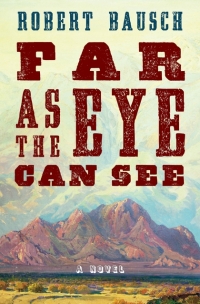The Casualties by Nick Holdstock
 Monday, August 3, 2015 at 10:09AM
Monday, August 3, 2015 at 10:09AM 
Published by Thomas Dunne Books on August 4, 2015
The Casualties is a pre-apocalyptic novel more than it is a post-apocalyptic story. While the story is told from 60 years in the future, it begins in the past (our near future) because history teaches that "everything is determined by what came before." The novel's structure sets The Casualties apart from typical post-apocalyptic novels because, although we are immediately and frequently forewarned that a near-extinction event on three continents is coming, the story focuses on the lives and activities of an eccentric group of people in the Comely Bank neighborhood of Edinburgh during 2016 and 2017, before the apocalypse occurs.
From the narrator of The Casualties (whose identity the reader deduces from hints as the novel progresses), we learn that Sam Clark, manager of a charity bookshop, learned about people from the books they donated and from the ephemera they left in their pages (ticket stubs, pictures, letters). A man named Alasdair who lived under a bridge owned few possessions because possessions make people unhappy -- except a stranger's old photo album that he cherished until he didn't. Caitlin, who had a horrible skin condition that isolated her from the world, had a crush on Sam. Sinead, a goth who has abandoned promiscuity in favor of celibacy coupled with obsessive self-gratification, had sexual fantasies about Sam. Unfortunately for Caitlin and Sinead, Sam was too terrified of reproduction to have sex with anyone.
Other odd characters of Comely Bank include an obese man whose hunger seems to be partially satiated by watching cooking programs, the caretaker who tests that phenomenon experimentally, a woman who writes letters to a dead man, an alcoholic couple, a Filipina prostitute, and a Pakistani shopkeeper who feels unwanted in Comely Bank. No writers do "eccentric" as well as those from the British Isles, and Nick Holdstock is a worthy heir to that tradition.
A part of the plot deals with old black-and-white photographs (reproduced in the book) from the 1920s to the 1950s. If everything is determined by what came before, those pictures tie the past to the present. A challenging amalgamation of past and present in the last pages drives that point home.
The Casualties is about the need to understand others, to avoid judgment of lives we have not lived. It is about living with the past while living in the present. It is about "admitting the faults of the dead without saying that they deserved to die." It is about transformative experiences and how their occurrences are so often unexpected and seemingly random. It is about the relationship between the past and memories of the past. It is about "me" being a succession of selves defined by memories (selves that would be different if lost memories could be restored). It is about moving on when plans and expectations are shattered. It is about how everything that happens is determined by what came before.
Apart from a brief visit to 2047, it is only at the novel's midway point that we learn anything meaningful about the apocalyptic event. Most post-apocalyptic novels assume than an apocalyptic event is a bad thing. This one assumes that it is a bad thing for the 2 billion people who die but ultimately a good thing for the 5 billion who survive. That's a remarkably fresh take on a tired genre that, while not the novel's focal point and thus not fully explored, is yet another fascinating notion that makes The Casualties worth reading.
Since the story deals with contemporary, pre-apocalyptic lives, The Casualties might be a good science fiction novel for readers who don't really like science fiction. On the other hand, it might be a bad novel for readers who think post-apocalyptic fiction should be about zombies chewing on non-zombies or scavengers killing each other as they fight over scrap metal. Setting aside genres and expectations, I would say The Casualties is a worthwhile novel for any reader who enjoys strong characters, provocative thought, and a memorable mixture of humor and drama.
HIGHLY RECOMMENDED
 TChris |
TChris |  Post a Comment |
Post a Comment |  HR,
HR,  Nick Holdstock in
Nick Holdstock in  Science Fiction
Science Fiction 



